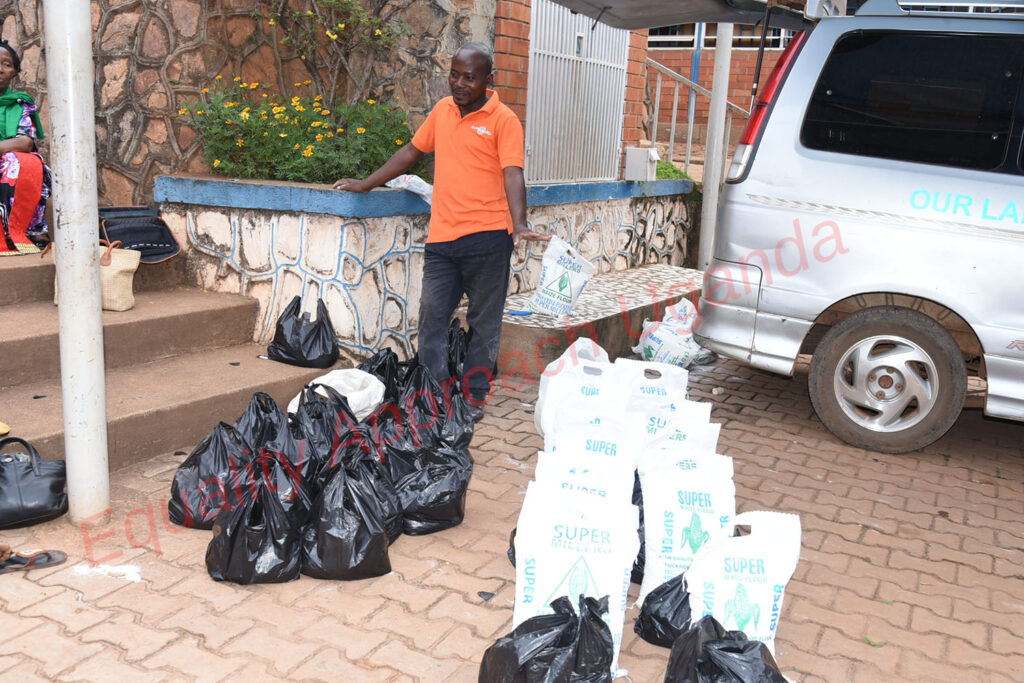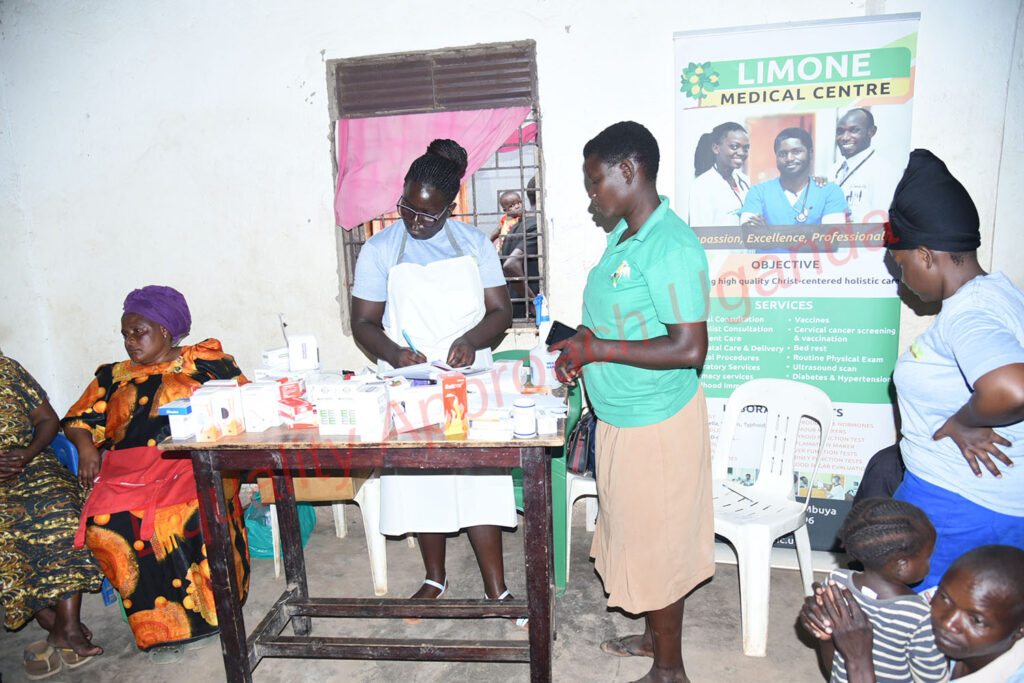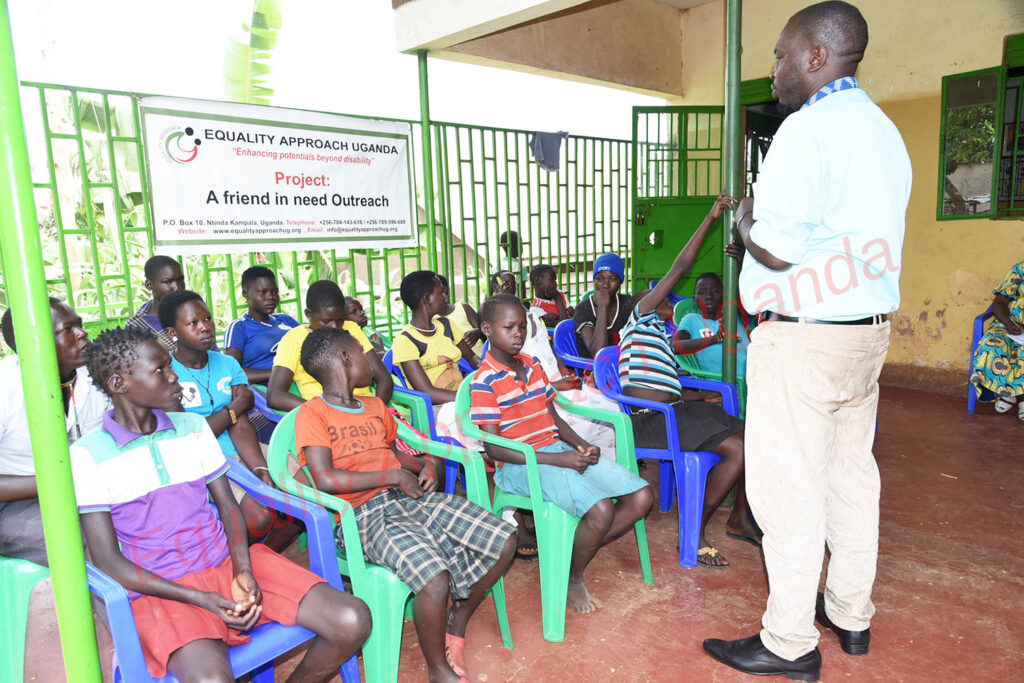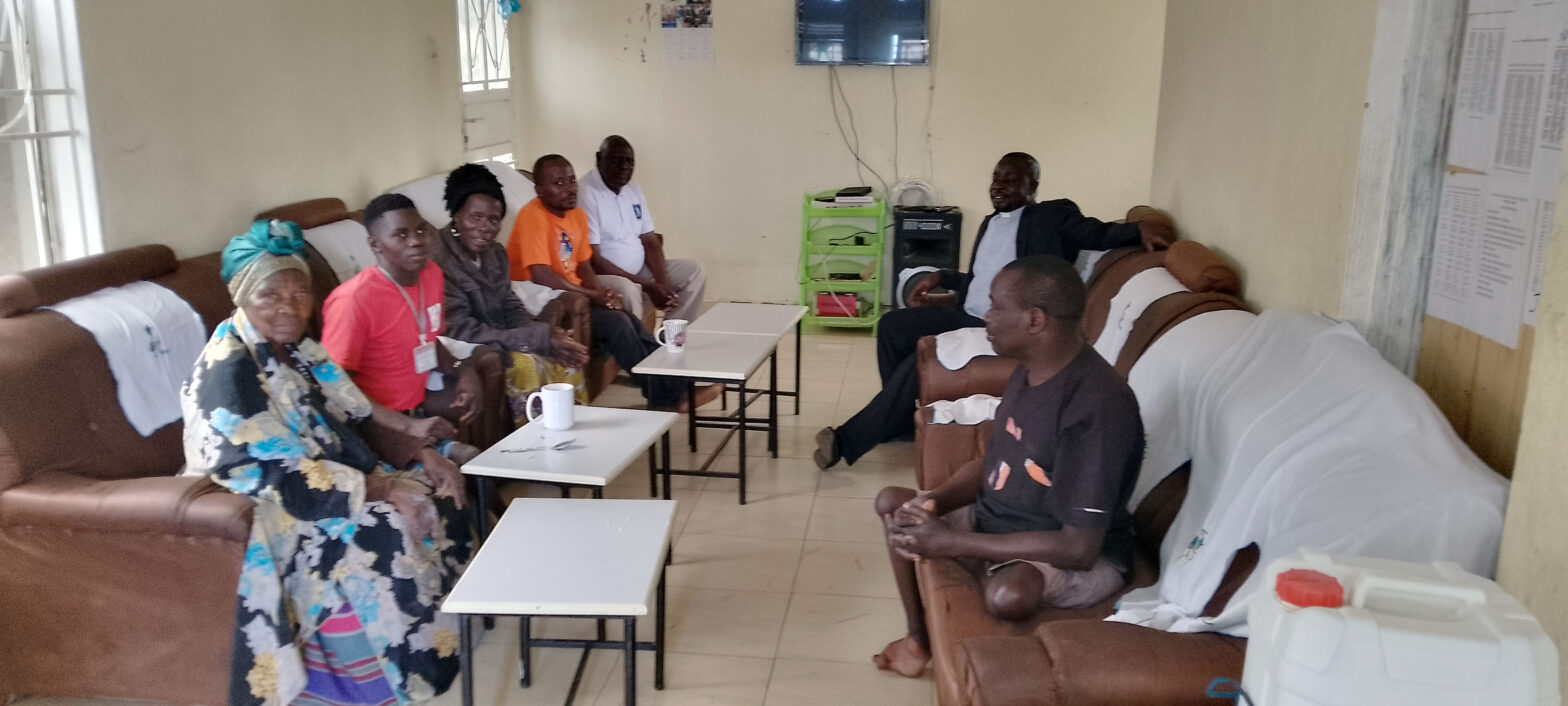EAU with support from Comboni Missionaries was tasked with 4 assignments to the benefiting communities of Karamoja, Kampala, Otuke and Lamwo. EAU learnt that Karamoja districts were already covered under another funding and opted to support those on Kampala city slums. Key was to bridge the urgent food crisis impacting negatively on the elderly and disabled persons, recognizing the link between food, health and ability to be productive and reduce vulnerability, the project provided for emergency medical support to the same population. The primary beneficiaries of this project are all elderly persons and Persons Living with disability, their spouses, children and families who are in the catchment areas of the allocated districts of implementation. Other beneficiaries include care takers of, Disabled children below 18 years, peers, health workers, community gate keepers and the youths.
The project interventions came during a period when the world celebrates; the elderly (1st October), and the Comboni Missionaries celebrates the day of the founder St. Daniel Comboni (10th October), hence the project was implemented together with other planned activities covered by Equality Approach Uganda, all targeting the same beneficiaries wellness and project sustainability.
The activities included, Radio talk show to seek support for those in need, Sensitization of the youthful care givers who are at risk, ( Karamojong community in Kampala), medical care, food distribution, urban farming training, wellness care, debate on of Elderly contribution against youth roles in the society, fireplace engagement between the youths and the elderly and outreaches to the hard to reach beneficiaries of Otuke and Lamwo.
PROJECT GOAL
The project goal is to comprehensively intervene to support inclusion and increase access to food and medication (basic needs). The project also ensured improving of understanding between the beneficiaries and the care givers; something aimed at increasing acceptance, support and capacity of the beneficiaries to self-independence and good health; which was done through sensitization, training of beneficiaries and their care takers, healthcare, material support, improved nutrition, for improved quality and sustainability inclusion levels and wellness.
OBJECTIVES:
The project had 3 specific objectives as follows;
- To bridge information and other factors gaps that drives vulnerability and limit or deny access to basic needs.
- To provide beneficiaries emergency food relief to the sick and Persons Living with Disability and elderly facing food crisis in Karamoja and surrounding districts.
- To ensure quality and sustainable project performance and management




Leave a Reply